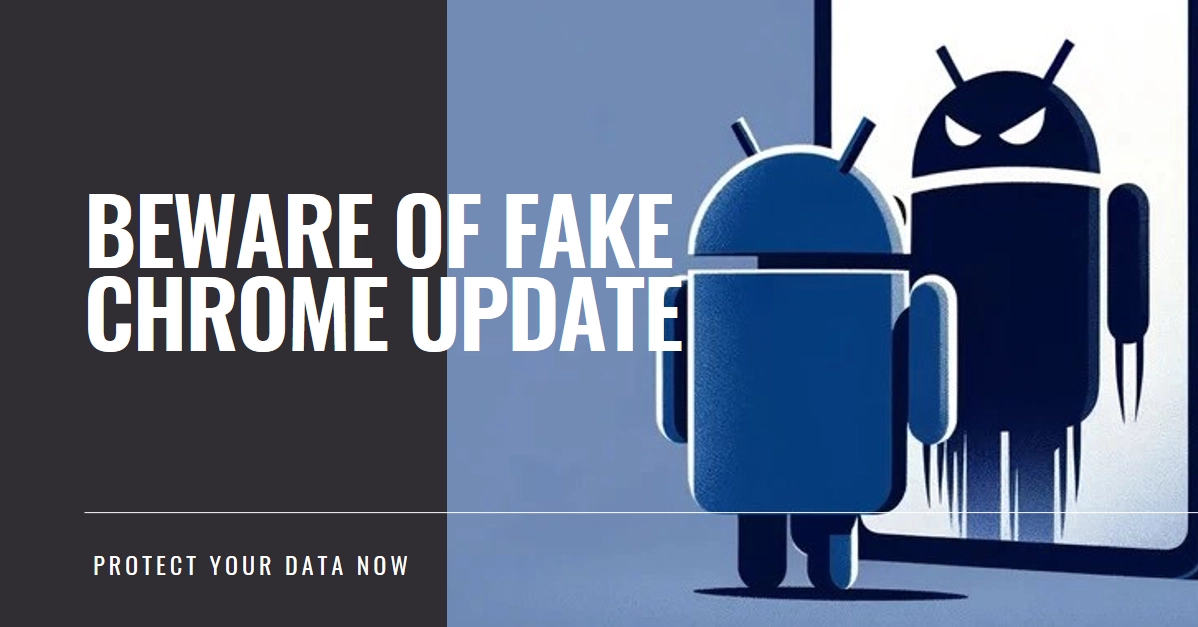A dangerous new scam is targeting Google Chrome users with a fake update. This malicious “update” is distributed through text messages, often containing shortened URLs masquerading as legitimate links. Once installed, this malware gains access to your sensitive data.
Google Chrome is the world’s most popular web browser, so news of a dangerous fake update stealing personal information is alarming. Here’s what you need to know:
The Threat
- Security experts from McAfee discovered a malware campaign spreading through text messages.
- This malware, called “MoqHao”, hides inside fake Chrome updates sent via shortened links.
- Once installed, it steals photos, messages, contacts, and more. It even takes control of your phone.
How It Works
- You receive a text message with a shortened link claiming to be a Chrome update.
- Clicking the link downloads the fake update disguised as the real Chrome browser.
- The fake update then asks for excessive permissions, such as access to your texts and photos.
- If you grant these permissions, the malware runs in the background and secretly steals your data.
Why This Matters
This fraud highlights a broader risk of downloading apps from untrusted sources. This campaign primarily targets Android users in Asia and Europe, but anyone can be a victim. Stick to the official app stores for maximum safety.
What does the fake update do?
- Asks for extensive permissions on your device (access to SMS, photos, contacts, etc.)
- Runs unseen in the background
- Transmits private data, including messages and photos, to hackers
How can I protect myself?
- Never click on text message links claiming to be Chrome updates.
- Only install Chrome updates directly from the official Google Play Store.
- Be cautious when granting apps permissions to access device data or functions.
- Consider reputable mobile security software to add an extra layer of protection.
- Be skeptical of shortened links. These can hide the real destination.
Google’s Response
Google emphasizes Android’s built-in protections and assures that Google Play Protect blocks threats like this. They also confirmed working with McAfee to address this specific malware.
Stay Safe!
By being cautious about unexpected links and where you download apps, you can keep your data safe and your phone secure.
